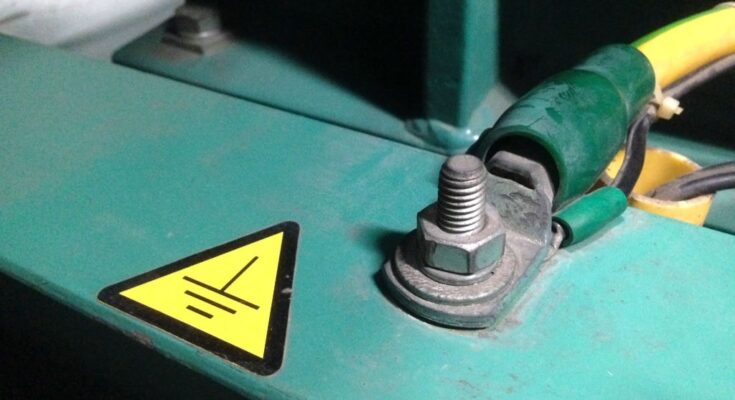If you landed on this page, it means you have a generator or are planning to buy one and want to ground it or wondering if you need to ground your generator or not. No need to fret! We’ve got you covered. This article will guide you on how to ground a generator, why you need to ground a generator, the tools you will need, and much more!
How to Ground a Portable Generator
Step 1: Install the Copper Grounding Rod
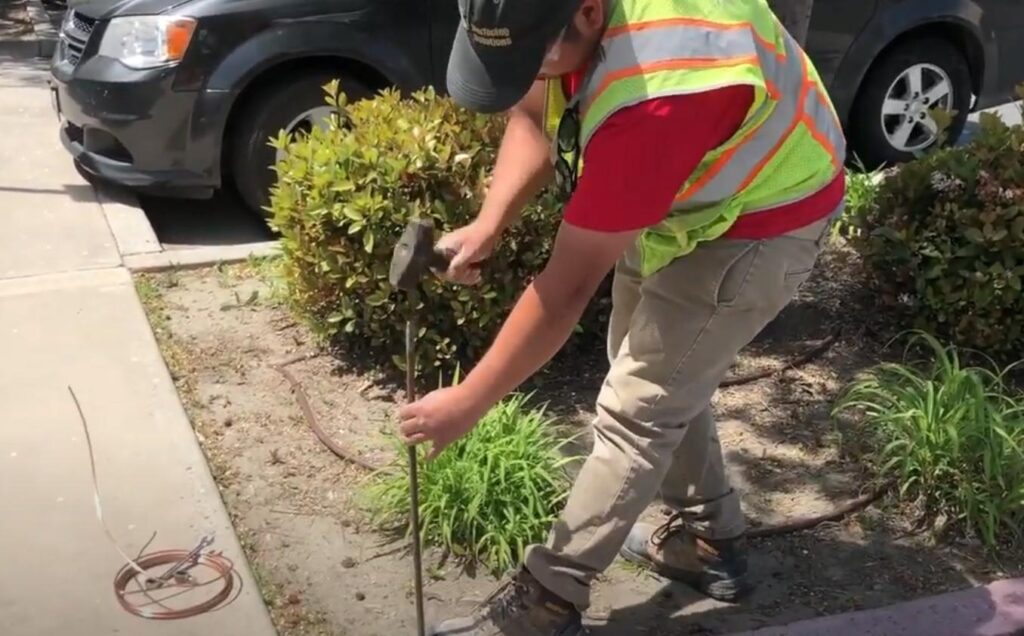
Hammer in the copper rod into the ground or bury at least 8 feet deep. Use water to soften up the ground if it’s too tough. The depth offers security against any electrical discharge from the generator grounding rod to electrocute people that might be standing on the surface.
If you happen to be in rocky or rugged terrain, you can drive the rod at an angle of up to 45 degrees.
Step 2: Connect Copper Wire to Grounding/Copper Rod
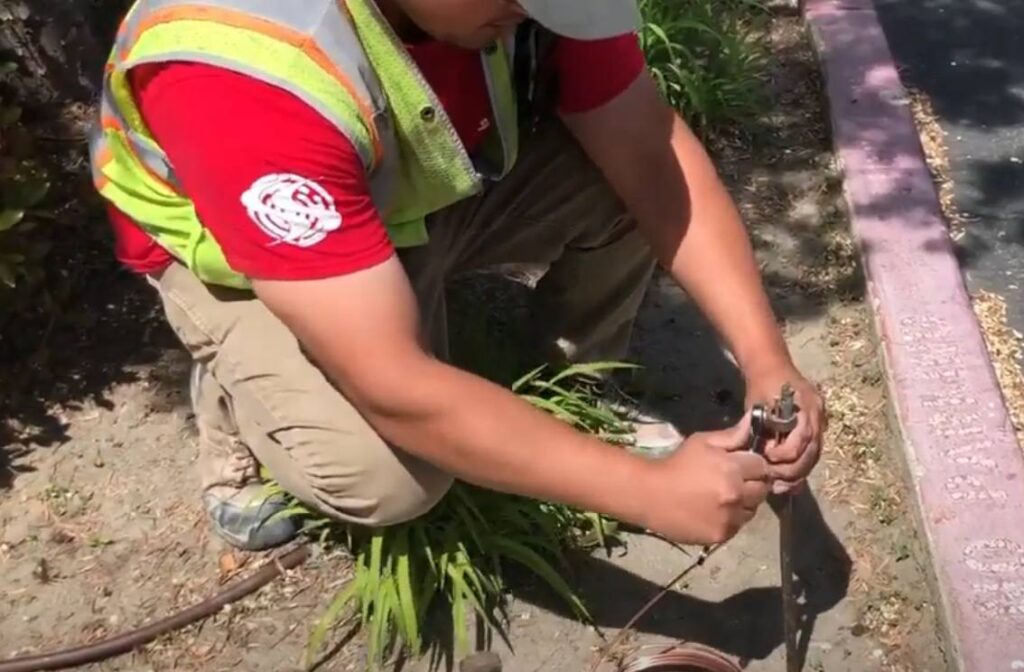
Employing wire strippers, strip out around 7-12 inches of insulation off one end of your copper wire. Then wrap this tightly around the top of the grounding rod using your pliers.
Step 3: Connect the Generator to the Grounding Rod
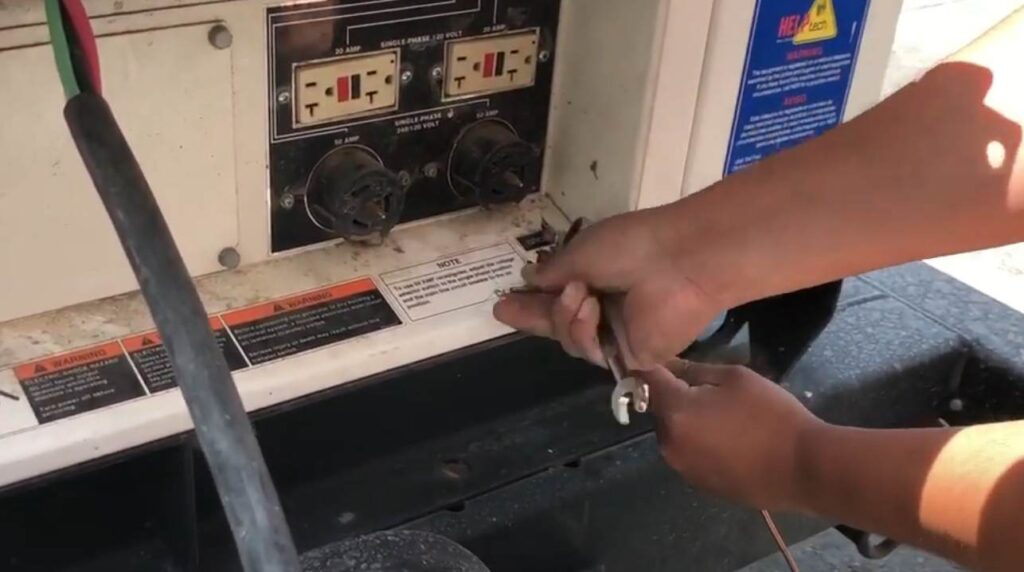
After stripping and connecting the copper wire to the grounding rod, it’s time to connect your generator to the grounding rod using the other end of your copper wire. Turn off your generator while you do this.
Carefully strip the other side of your copper wire. Locate a grounding bolt on your generator, and loosen it slightly.
Strip the end of the copper wire about one to two inches, and using your pliers, wrap it around the grounding bolt. Tighten the nut to ensure a secure connection.
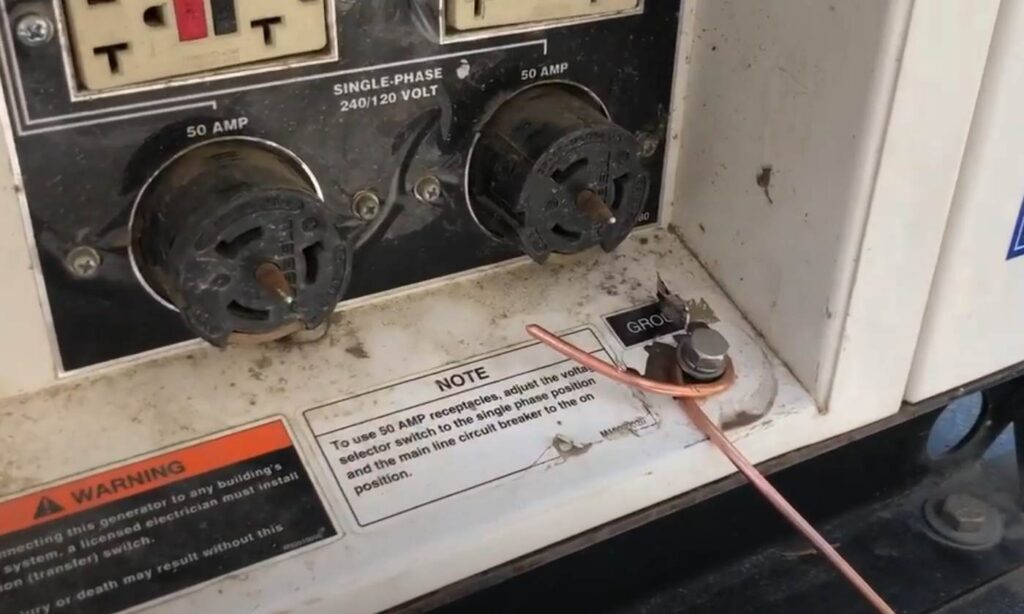
Tools you will need to ground a generator
If you have to ground your generator, it’s essential to ensure you have all the tools you might need in your arsenal. You can find these on most job sites if you do not have them in your home.
- Wire Strippers: For connecting your copper wire to the copper rod and generator, you need to strip the copper wire. A good set of wire strippers makes this process a lot easier, cleaner and safer.
- Eight feet Copper Ground Rod: This is the most critical piece of equipment you need to ground a generator. Having the right copper grounding rod makes all the difference to get the best results. As per the National Electrical Code standard, the rod has to be at least 8 feet long and at least 5/8 inches in diameter.
- Solid Copper Grounding Wire: Make sure you have an ample amount of copper wire to connect the wire to the generator and the copper ground rod, just in case you need something extra.
- Hammer/Sledge Hammer/Mallet: You will need a quality hammer, mallet, or sledgehammer to drive the copper rod into the ground for proper grounding. Just be careful not to damage the copper rod’s coating, as this could result in a poor connection.
- Pliers: For winding the copper wire tightly around the grounding rod, you will need a good set of pliers to make the connection better.
- Wrench: You will need to attach the copper wire to the generator, for that, you have to loosen a bolt on the generator for proper connection
- Screwdriver: It will come in handy to remove a grounding bolt that has been rounded off or does not have a hex head.
- Shovel: If you have to hammer in a copper rod into rocky terrain, a shovel can be used to bury the rod instead.
FAQs
What is grounding?
Grounding means the process of connecting an electrical circuit to a reference ground. In the case of a generator, its frame acts as the electrical circuit, and a correctly installed grounding rod serves as the reference ground.
A copper wire from your generator’s frame to the grounding rod is connected for a safe generator operation, hence grounding.
Do I need to ground my generator?
The simplest way to determine whether you need to ground your generator or not is by checking your generator’s user manual.
- If the user manual is not on hand, a few checks can still be made to ensure proper safety.
- If your generator is a separately derived system, you will need a grounding rod.
- If it is not a separately derived system, then it will not need to be grounded.
To identify whether your generator is a separately derived system, you can simply check the generator’s transfer switch. An unseparated derived system has a transfer switch that cannot be transmitted to the neutral ground conductor, implying it will not need a connection to a grounding rod.
Most portable generators have their engine, housing and fuel tank bonded to the frame, indicating you will not need to ground them.
Do I need to ground my generator when camping?
You don’t always need to ground your generator. Most manufacturers have their components bonded to the generator’s frame, acting as a ground wire for you. You will need to ground the generator if you plan to plug it into a wired circuit system or plug electrical appliances directly into your generator.
Where can I ground my portable generator?
You will need to connect your generator to a ground rod, which must be hammered into the earth, then connected to the ground lug on the generator using a ground cable. The rod must go at least 8ft deep into the ground for proper safety.
Can I ground my generator to my house ground?
Yes. You can do that. Having an automatic transfer switch is great. And a UPS, quaint. It is essential to use your pre-existing house ground.
You must have one reliable ground for any building or structure. Do NOT make the mistake of separately grounding your generator. It should tie into your house’s ground the same way any other device would.
Using a separate ground for the generator can be dangerous if a nearby lightning strike or a provincial electrical utility’s infrastructure fails.
What happens if you don’t ground a generator?
If you don’t ground a generator, that path of least resistance might allow electricity to flow in places it shouldn’t be, causing electrocution, sparking a fire, or causing other hazardous situations. Grounding allows a backup path of minimum resistance for the electricity flow.
Do Generac generators need to be grounded?
All Generac permanent residential air-cooled generators have non separately derived systems. You need a conductor that delivers a fault return path installed with the generator feeder conductors.
What size wire do I need to ground a generator?
The copper wire length you will need to connect the generator to the ground rod is not of that importance. You only need a reasonable length to reach a suitable distance for the ground rod. However, the gauge of the grounding wire for generator is essential. The electric code prescribes at least 6 or 8 copper wires for a domestic grounding rod.
Does a portable generator need a ground rod?
If your portable generator provides electric power to a structure by connection through a transfer switch to a network such as an office, trailer, home, shop, etc., you have to connect it to a grounding electrode system, which will require a ground rod.
Does generator need neutral?
Generators employed on construction sites furnishing cord-and-plug connected equipment are regarded as a “separately derived system” in the NEC (National Electrical Code). Hence, it requires the neutral bonded to the frame of the generator.
Do I need to ground my inverter generator?
You must ground your inverter generator to keep yourself and those around you safe. However, to ground an inverter generator might not be necessary if it has a metal frame that serves as the electric resistance path. If not, without a ground system, your inverter will become electrically charged, causing electrocution.
Conclusion
Grounding a generator is critical for an efficient set-up and use of a portable generator. This ensures fewer chances of malfunction, keeping you and your appliances safe. Even if your generator does not require grounding, knowing how to ground a generator properly can help keep others safe. We hope that this article will guide you if you need to ground your generator or help a family member do so.
If you have any queries doing the task, please let us know in the comments down below. We will love to help you out. Safe generator grounding!

